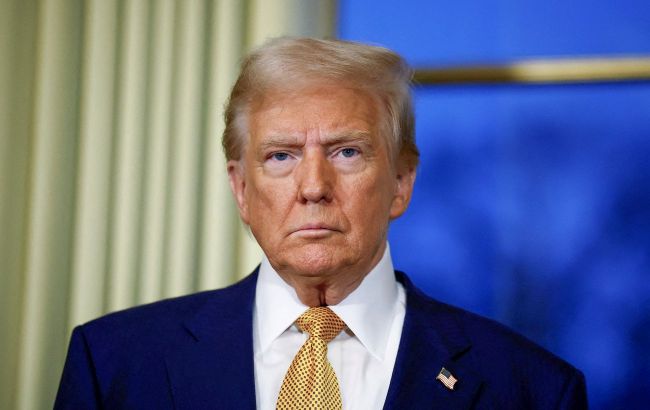Trump suggests cutting oil prices to end Ukraine war - Expert weighs in
 Photo: US President Donald Trump (Getty Images)
Photo: US President Donald Trump (Getty Images)
A $10 drop in oil prices could realistically reduce Russia’s revenues and, consequently, Moscow’s ability to continue its war against Ukraine, Hennadii Riabtsev, director of the Psychea Center, said in a comment to RBC-Ukraine.
The idea to lower oil prices was proposed by US President Donald Trump. He made this statement just days before the expected decision on imposing secondary tariffs on Russia’s partners, and possibly other measures that could push Russian President Vladimir Putin toward a peace deal with Ukraine.
Trump stated that a $10 decrease in oil prices could force Russia to stop the war. The American leader believes that if energy prices drop low enough, the Kremlin chief will "stop killing people". "If you get energy down, another $10 a barrel, he's going to have no choice because his economy stinks," Trump emphasized.
According to Riabtsev, this tool could indeed be effective in reducing Russia’s income.
Currently, the price of Brent crude oil on the London exchange is nearly $68 per barrel. If the price drops by $10, it would be $58. At that rate, Russian Urals crude would cost $48 per barrel. This is still a very small decrease, as Russia would continue to generate export revenue, Riabtsev noted. Russia can sell oil with minimal profit at $40 per barrel. Therefore, to achieve maximum impact, Brent quotations would need to fall much further.
"If Brent prices are reduced to the $40–50 per barrel range and remain there for several months, then Russia’s oil export revenues will decrease, if not to zero, then by several times," Riabtsev told RBC-Ukraine.
Why oil prices may fall
Following Trump's statement, oil market prices are expected to decline, though it remains unclear how low they might go.
Additionally, OPEC+ countries have already agreed to increase oil production by 547 barrels per day in September, which will inevitably lead to further price drops.
Members of the organization plan to consider another production cut of about 1.65 million barrels per day at a meeting on September 7. These cuts are set to remain in effect until the end of next year.
"Oil prices will decline. OPEC is increasing production, and so is the United States. Higher supply with low demand brings prices down," noted Riabtsev.
Russia’s oil revenues have already dropped
The drop in oil prices has already led to budget losses. According to Russian media, in July, revenues from oil and gas taxes fell by nearly one-third, by 787.3 billion rubles. This level of decline has been recorded by Russia’s Finance Ministry for the third month in a row. Since the beginning of the year, oil and gas revenues have fallen by almost 20%, or 1.2 trillion rubles. The budget received 5.52 trillion rubles, compared to 6.777 trillion during the same January–July period last year.
EU price cap on Russian oil
In July, the European Union introduced a new price cap on Russian oil as part of its 18th sanctions package against Russia.
The cap is now set 15% below the average market price of Russian oil. This means the ceiling is no longer $60 but $47.60 per barrel, and it will be reviewed every three months.
Notably, the United States declined to implement such restrictions at the G7 level. According to unnamed Bloomberg sources, such a decision could have only been made personally by President Donald Trump.
The $60-per-barrel price cap was originally introduced by all G7 members when Joe Biden was still President of the United States.

